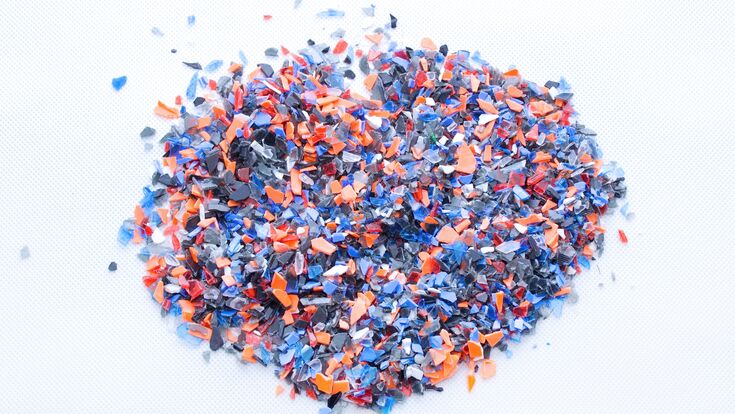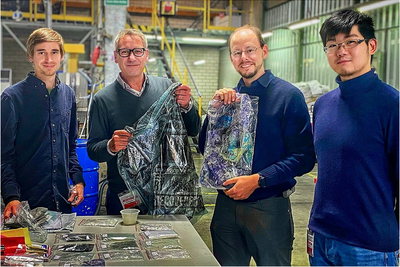Plastic Waste : Cross-Industry Collaboration announces successful Deinking of Plastic Waste before Recycling Extrusion

Of the 390 billion tonnes of plastic annually produced worldwide, only about 9% is recycled and about 12% ends up in landfills. The rest can end up in the environment, polluting oceans and rivers and breaking down into microplastics that pose a risk to human health. So obviously, there is a clear and urgent need to improve recycling processes and ensure that more packaging enters the recycling stream. Deinking packaging prior to regranulation helps prevent packaging inks from contaminating the materials being recycled and ensures that packaging stays in the recycling stream. That’s why ink and coatings specialist Siegwerk, German startup Wildplastic, and the Hamburg University of Technology (TU Hamburg) collaborate to do just that.
The partners recognise that progress can only be made through cross-industry collaboration. Wildplastic, a German start-up founded in 2019, works with communities of collectors globally to collect 'wild' plastic from beaches, landfills and illegal dumpsites. In the spring of 2019, Wildplastic will start selling its first garbage bags made from 100% recycled plastic. Currently, their focus is on sourcing low-density polyethylene (LDPE), such as bubble wrap or certain food packaging. Once collected, the plastic is transported to a recycling partner who washes, melts and processes it into granules. These recyclate pellets are then sent to a manufacturing partner and used to replace virgin LDPE material.
In 2021, Wildplastic and the Institute of Circular Resource Engineering and Management (CREM) of TU-Hamburg started a cooperative research and development project, financed by the Investment and Development Bank of Hamburg (IFB) to study the feasibility of improving the quality of LDPE-recyclates from post-consumer sources. Evonik is supporting this project as a cooperative partner.

Siegwerk supports Wildplastic in this initiative by providing the deinking chemistry and knowledge to enable the production of clean recyclate. Successful deinking requires a precise combination of the right ink chemistry, the right deinking detergent and the right process. Inks on packaging can often be an obstacle to recycling, as the inks degrade during the recycling process and can contaminate the recyclate, resulting in unpleasant odours or unsightly colours. Even if the inks are not completely removed, the opportunities for recycling are increased exponentially.
